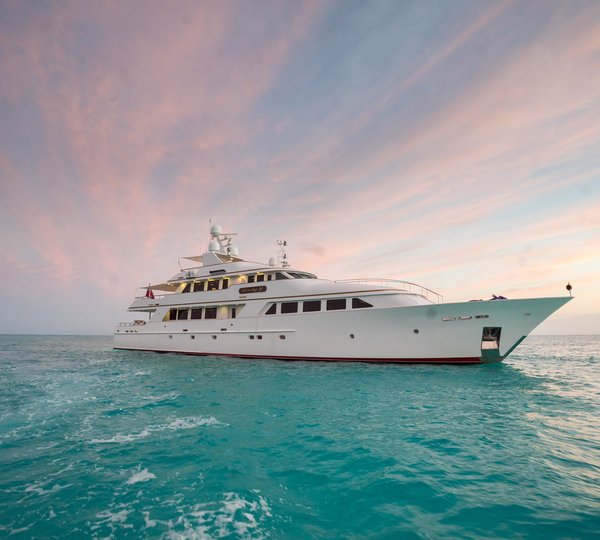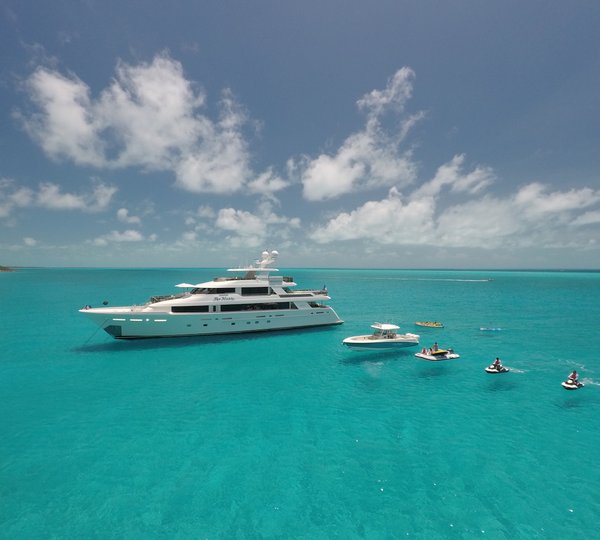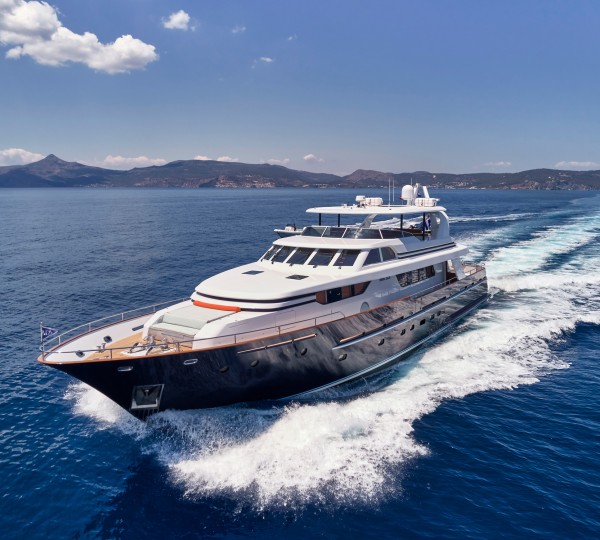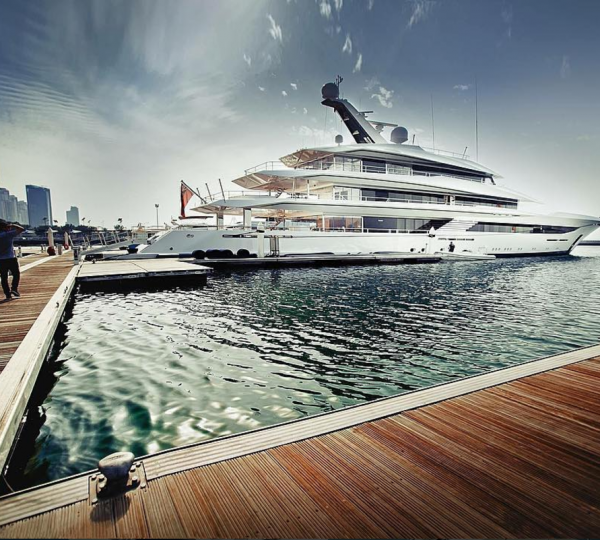How much should you tip on a superyacht charter?
How much you should leave as a tip is still one of life’s mysteries. Whether it’s the bell man, a waiter or hairdresser, it’s often difficult to know just what to give as a thank you for their services. Sailing on a superyacht charter doesn’t really make this particular issue any easier although it is customary to give the crew a gratuity at the end of your vacation. Here’s some info about ending your trip on a high note and what to offer as a tip.
An acceptable amount to tip
Generally, when chartering in the Mediterranean, crew tips typically range from 5% to 15% of the basic charter fee, whereas tips on American-owned and based yachts often start at 15% or higher.
What percentage should I give?
Remember charter crew work 16-18 hours each day from dawn to midnight. They do work very hard to make sure all guests are well looked after while providing a top-class service. Taking this into account should give you a good idea of the percentage of tip to give.
Tipping etiquette
There’s an unspoken rule that all tips should be given to the captain. He will then divide the amount between the crew so everyone receives a fair share. Remember that some crew work in the background so you might never see them in person.
Should I give some crew more than others?
If a member of the crew has paid special attention to you and ensured you have had a wonderful vacation, is it fair to give him or her a large tip? The answer is, not really. All crew work together as a team and should be offered the same cash tip as each other.
The importance of the crew
With superyachts available to charter coming in all different sizes, they need to carry the right number of crew. Smaller vessels usually operate with just a captain and a chef who can also double up as a deckhand. Larger superyachts and some mega charter yachts often have as many as fifty crew members. Mid-size charter yachts, i.e. 30-60m in length, can carry between six and fifteen crew.
Although crew are professionally trained to know all there is to know on a charter, they also have interchangeable roles. These roles fall into five categories of what the crew can and can’t do while on board. It’s essential for guests to understand just what each member of the crew offer.
The captain who usually has four gold stripes
The captain has the ultimate responsibility for the yacht he is sailing and what he says, goes. This is the rule of the sea and no-one should question it unless they want to end up on shore instead of being out on the ocean.
Do make sure the captain knows where you would like to sail to and your preferences while on board. He or she will do everything they can to grant all of your wishes, within their capability of course. The captain can also suggest a fantastic itinerary for you. After all he has years of experience in sailing to the best exotic destinations or the most interesting locations.
It's inadvisable to ask for the impossible. Some things just cannot be changed for instance, times of leaving a certain dock to another harbour at an unearthly hour. The captain has to think about the tide turning usually mid-morning when the harbour entrance might be too shallow to enter.
Take notice of the captain’s weather advice too. Don’t argue your case with him, he knows best especially when the weather may turn. Again, with years of experience behind him, he is a charter captain who knows just what can happen if sailing in rough seas. Seasickness isn’t much fun so if the forecast isn’t too good, it’s best to stay at anchor until the weather clears.
The onboard chef
Another very important person on board is the chef. He or she is responsible for all meals cooked under his or her supervision. Being flexible means the chef can change from preparing a five-course gourmet dinner to simple on-deck barbecue food or even jam sandwiches for the children.
Before booking a yacht charter vacation, find out about the chef and his or her expertise. Take a look at sample menus to make sure everyone in your party is catered for especially if there are any vegans. If for instance a chef has a leaning towards Asian cuisine, it won’t be much fun if you don’t enjoy noodles or sushi. Let the charter broker know well in advance what you like to eat and drink. There should be preference sheets to fill in so there won’t be any issues once you set sail.
Remember the chef has to rise early in the morning to start preparing breakfast and all the day/evening meals. Lots of people prefer to eat late in the evening so the chef will still be on the go late at night.
Deck crew who operate and maintain the vessel
The first officer, who is second in command to the captain, to the deck hands have responsibility running the tenders and handling the dock lines. Sometimes deck crew may double up as bar tenders or servers of evening meals, so they also work long hours. One of the crew might be the person who launches jet skis or other water toys when asked. Others operate the tenders to and from shore while some are on board to keep the vessel looking spotless at all times.
If you need any kind of help while on vacation, don’t be shy to ask a member of the deck crew. Most of them have walkie-talkie radios and if he or she isn’t the right person to sort your issue out, someone else can be contacted quickly to come to your assistance. Something as small as moving a lounger into the sun is better to be left to one of the crew as sliding such a piece of furniture could scratch the expensive deck.
Interior crew
Although the name “interior crew” sounds a bit odd, these members of staff will serve you whatever you want while you are on one of the outside decks. The chief steward or stewardess oversee the interior crew and a team of stewards/stewardesses.
The teams responsible for replacing used sheets with fresh bedding, towels, cleaning the cabins and living areas are more like hotel staff. They will turn your bed down in the evening, maybe place a chocolate on your pillow, help with missing buttons or clean up a spillage on one of your outfits.
Make sure the interior crew know about any specific requests like extra pillows or towels. You may wish for water in the fridge or an early wake-up call. If so, do ask in good time.
The engineers
Last but by no means least are the unsung heroes, the engineers. These members of the crew ensure engines are running properly while taking care of the ancillary systems too. They spend most of their day and evening below deck and usually wear overalls so you can identify them.
The engineering crew might even take the place of tender drivers or help with the water toys, but as a rule of thumb they are often unseen on deck.
Remember when the vessel is in dock or at anchor, the engineering team are still on duty. Yacht systems are working constantly, day and night.
























